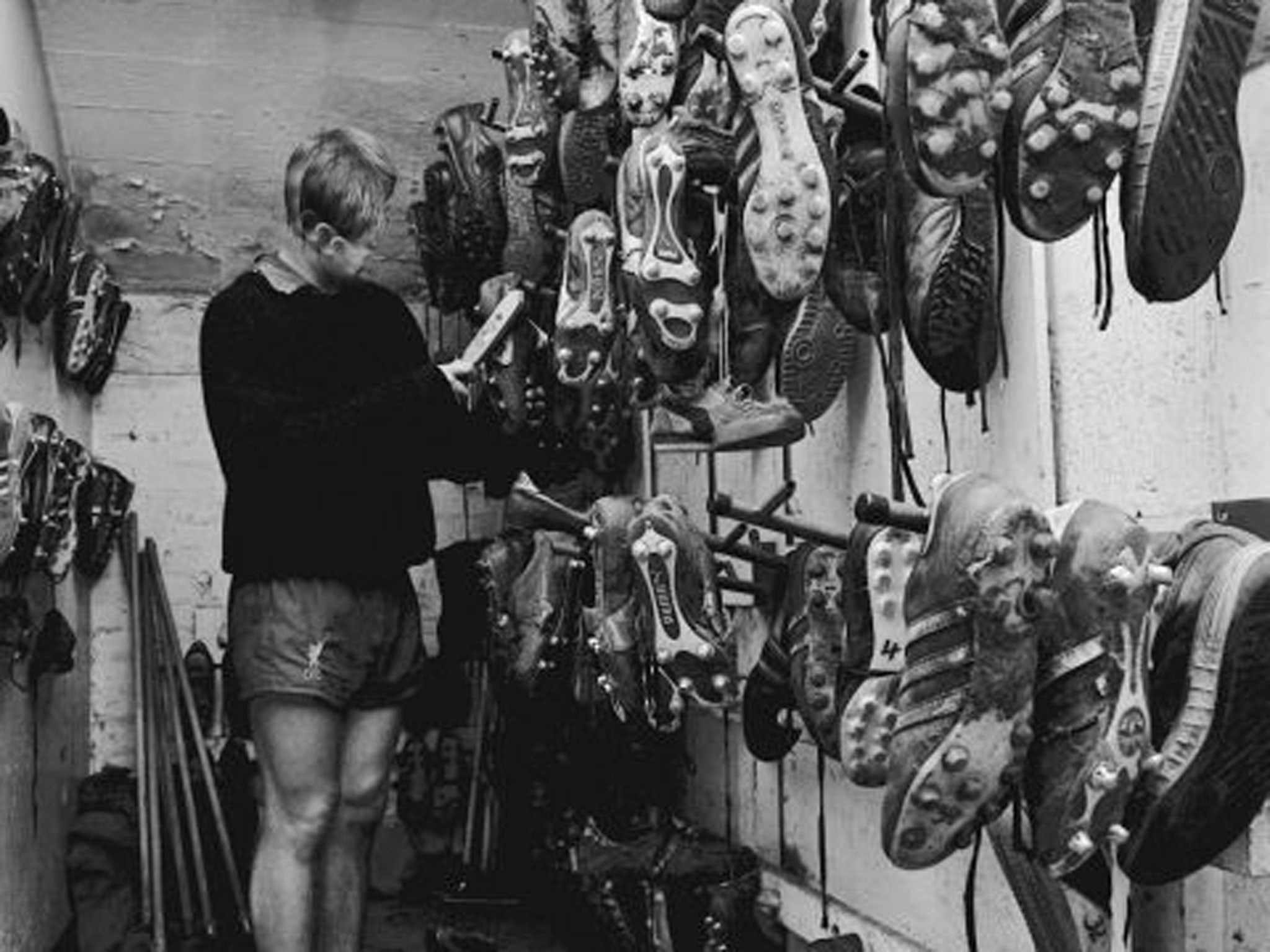Grime and punishment: Dark tales of ritual abuse in boot-rooms could spark a wave of legal claims against clubs
Former Stoke City apprentice claims damages for allegedly being subjected to a ritual known as the “The Glove” and “The Finger”

Even in such a macho sport as football, the punishment ritual inflicted on apprentices who were judged to have failed in their work at one top First Division club in the early 1980s was an extraordinary one. The word or a nod would be given and the victim would be ordered to walk to the shower room beside the naked team captain, holding that individual’s genitals.
Other players from the 1970s and 1980s era will respond with a shudder to the word “blacking” – the pinning down of young apprentices while their testicles were daubed with black boot polish. “It took you three weeks to get it off,” says one former Liverpool player, whose account of those days reveals the damage done to those who failed football’s survival of fittest test. “I remember one player was left with a stutter,” he says. “Others never played football again. It was mental and physical abuse on a daily basis.”
All of that pales in comparison to the testimony given at Preston County Court in the past two weeks by George Blackstock, the former Stoke City apprentice claiming damages for allegedly being subjected to a ritual known as the “The Glove” and “The Finger”, in which goalkeeper Peter Fox allegedly daubed his glove in Raljex and inserted it up the 16-year-old’s backside while he was pinned to the treatment bench. Several witnesses have testified to Blackstock getting “The Teapot” – in which the hot receptacle was held to his backside. Blackstock’s transgressions included serving lukewarm tea and making a line decision against a first-team player in a training game. Stoke and Fox deny the allegations.
Football awaits with trepidation Judge Philip Butler’s decision, due in the New Year, on whether to give Blackstock leave to sue Stoke and Fox for an estimated £5,000 damages. The court heard from Stoke defence barrister Nicholas Fewtrell on Tuesday that other players are “waiting in the wings” for possible legal action and the Independent on Sunday understands that several other ex-Stoke apprentices have consulted no-win, no-fee lawyers about “blacking” incidents.
The Professional Footballers’ Association chief executive, Gordon Taylor, declined to discuss the case ahead of the judge’s ruling, but there is a sense of dismay in the game that 1980s practices might provoke a spate of litigation. The Blackstock claims are grim – the court heard that former players George Berry, Carl Saunders and Steve Parkin allegedly held down the Northern Irishman while Fox applied the glove, though the alleged incident is far removed from the kind of sexual abuse from that period which the Jimmy Savile case brought to light, and which also led to the former Celtic Boys Club manager, Jim Torbett, being jailed for 30 months in 1998. Torbett was convicted of shameless indecency for abusing boys, including the future Scotland international Alan Brazil, between 1968 and 1974.
At Stoke, Berry, Saunders, Parkin all deny the allegations and Judge Butler’s response has so far revealed reservations about the quality of some of the evidence.
One of the witnesses to Blackstock receiving “The Glove”, former apprentice and now serving Staffordshire Police officer Justin Edwards, was heavily censured in court by the judge for testifying in one statement that he himself had been abused, whilst not mentioning this in another statement during the force’s 2008 investigation into the allegations. Edwards was asked to explain why he did not inform his force of the abuse when he became a serving officer, if he knew of it. Edwards felt at the time that it wasn’t something worthy of a criminal investigation.
The decision of Blackstock to go to The Sun with his story, after it allegedly became clear that Stoke were unwilling to pay compensation, has led to a financial motive being discussed at length in court. “They go to Stoke with the allegations, who deny it. So they go to The Sun,” Fox’s barrister John McNeill said this week. Judge Butler seemed to acknowledge that the case had significance beyond football, in sports where punishments come with the territory.
“If you have got a university rugby team on their way home from a match, you may say they are all consenting adults,” he said. “The victim may go along with the idea that if they have ‘failed’ with a pass, he might have to take [punishment].”
Even in recent years, the apprentice footballer’s environment has remained forbidding. A player at one leading Premier League club had his nose broken when a towel was flicked at him because he refused to cooperate with the initiation ceremony of standing on a chair to sing.
But the brutality of the punishment culture began tapering off in the mid-1990s. “It began to change with the Academy systems, the arrival of foreign players and maybe the recognition that these were not much more than children. It changed with the change in attitudes,” said one Academy coach.
“It’s a lot different,” a 20-year-old Liverpool player told the Independent on Sunday. “Standing up and singing in front of Jamie Carragher, which I had to do at my first Christmas party, was a challenge. But it was just sharp banter and that’s good for those of us coming in.”
But the Stoke case does raise the question of how many young talents fell by the wayside because they could not run this gauntlet of abuse. “It helped if you were tough in the first place,” said one witness to events at the time. “You couldn’t be shy or you’d be crucified.”
Bookmark popover
Removed from bookmarks